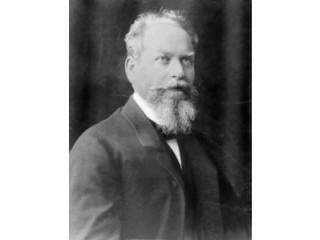
Edmund Husserl biography
Date of birth : 1859-04-08
Date of death : 1938-04-27
Birthplace : Prostějov, Moravia
Nationality : German
Category : Famous Figures
Last modified : 2011-03-02
Credited as : Philosopher, Phenomenology,
The German philosopher Edmund Husserl is considered the father of phenomenology, one of the most important trends in 20th-century philosophy.
Edmund Husserl was born on April 8, 1859, in Prossnitz, Moravia. After finishing his elementary education in Prossnitz, he attended schools in Vienna and Olmutz. In 1876 he entered the University of Leipzig, pursuing physics, astronomy, and mathematics. He proved to be especially gifted in mathematics, and in 1878 he moved to the University of Berlin to study with a number of the leading mathematicians of that era. He became profoundly interested in the question of the foundations of mathematical reasoning, and he took his doctoral degree in mathematics at Vienna in 1883. Thereafter, however, his interest turned increasingly to philosophy, and he followed the lectures of Franz Brentano with great interest.
Husserl began his teaching career at Halle, initially as an assistant to the distinguished psychologist Carl Stumpf. Here Husserl published his first research into the foundations of mathematics, volume 1 of his Philosophy of Arithmetic (1891). Following British empiricism, he tried to show how the foundations were to be found in acquired habits of thought. But, yielding to sharp criticisms by Gottlob Frege, he soon revised his opinions. He then pushed the question further back into the ultimate foundations of all rational thought. Gradually he became convinced that the ultimate justification of thought patterns rested in the synthetic powers of consciousness—not in mere habits of thought but rather in indispensable concepts and relations, which, as underlying all thought, were seen to be necessary. These ultimate phenomena became now the constant objects of his tireless research.
Husserl's first preparatory studies in phenomenology were published as The Logical Investigations (2 vols., 1900-1901). Called to a professorship at Gottingen (1901-1916), he continued to write extensively. Works from this period include The Idea of Phenomenology, Philosophy as a Rigorous Science, and the first part of his Ideas toward a Pure Phenomenology (1913).
In 1916 Husserl was called to Freiburg as a full professor. Here he published the second and third parts of his Ideas, together with three other long works. He retired in 1929 and, remaining in Freiburg, continued to write. From this period date the Cartesian Meditations and the Crisis of the European Sciences. In all of these works Husserl doggedly pursued his vision of a radical foundation for rational thought. His passionate dedication to clarity and fundamental insight were what most impressed his students. Never satisfied with his results, however, he referred to himself at the end of his life as "a true beginner." Husserl died at Freiburg on April 27, 1938.
















